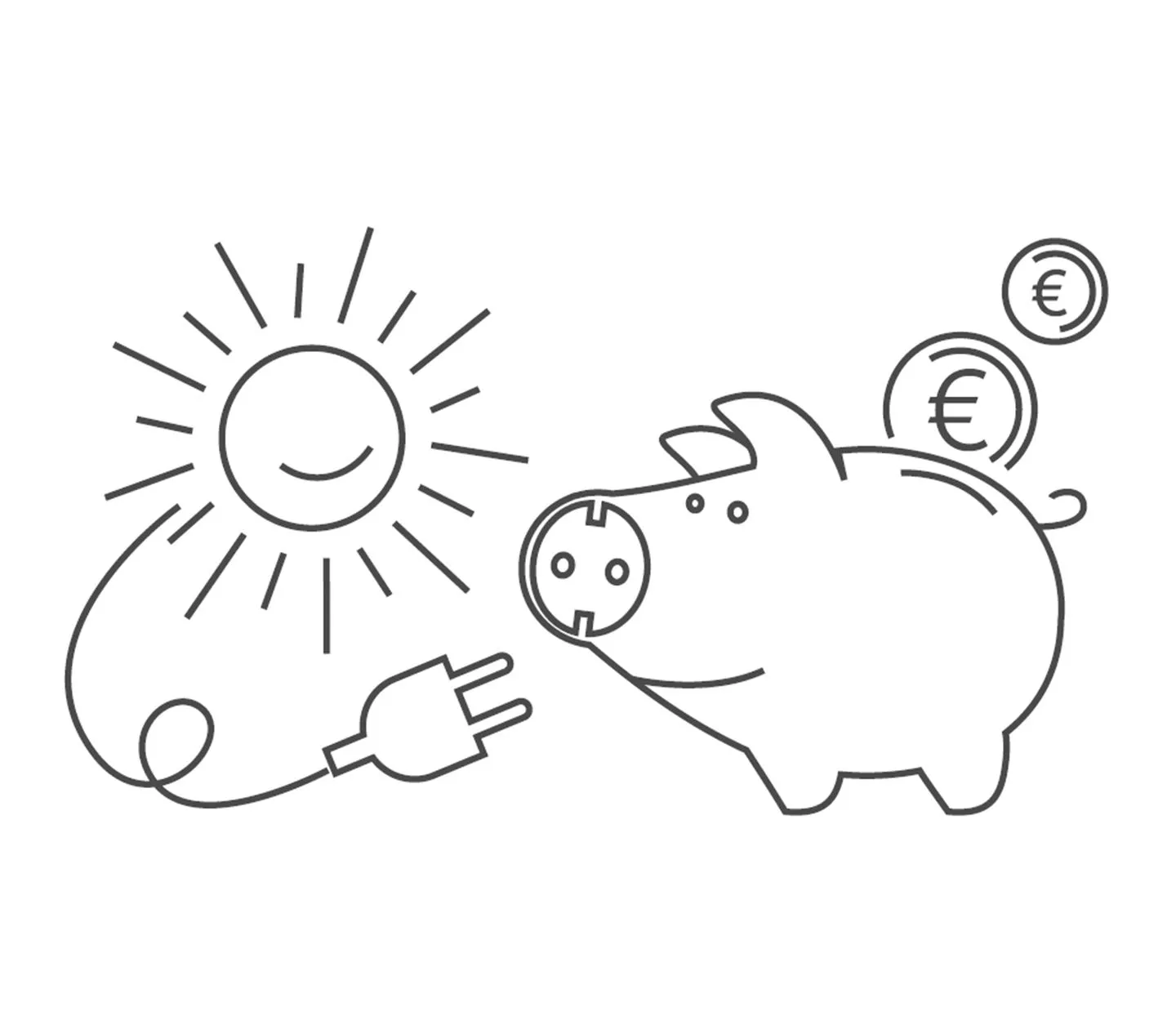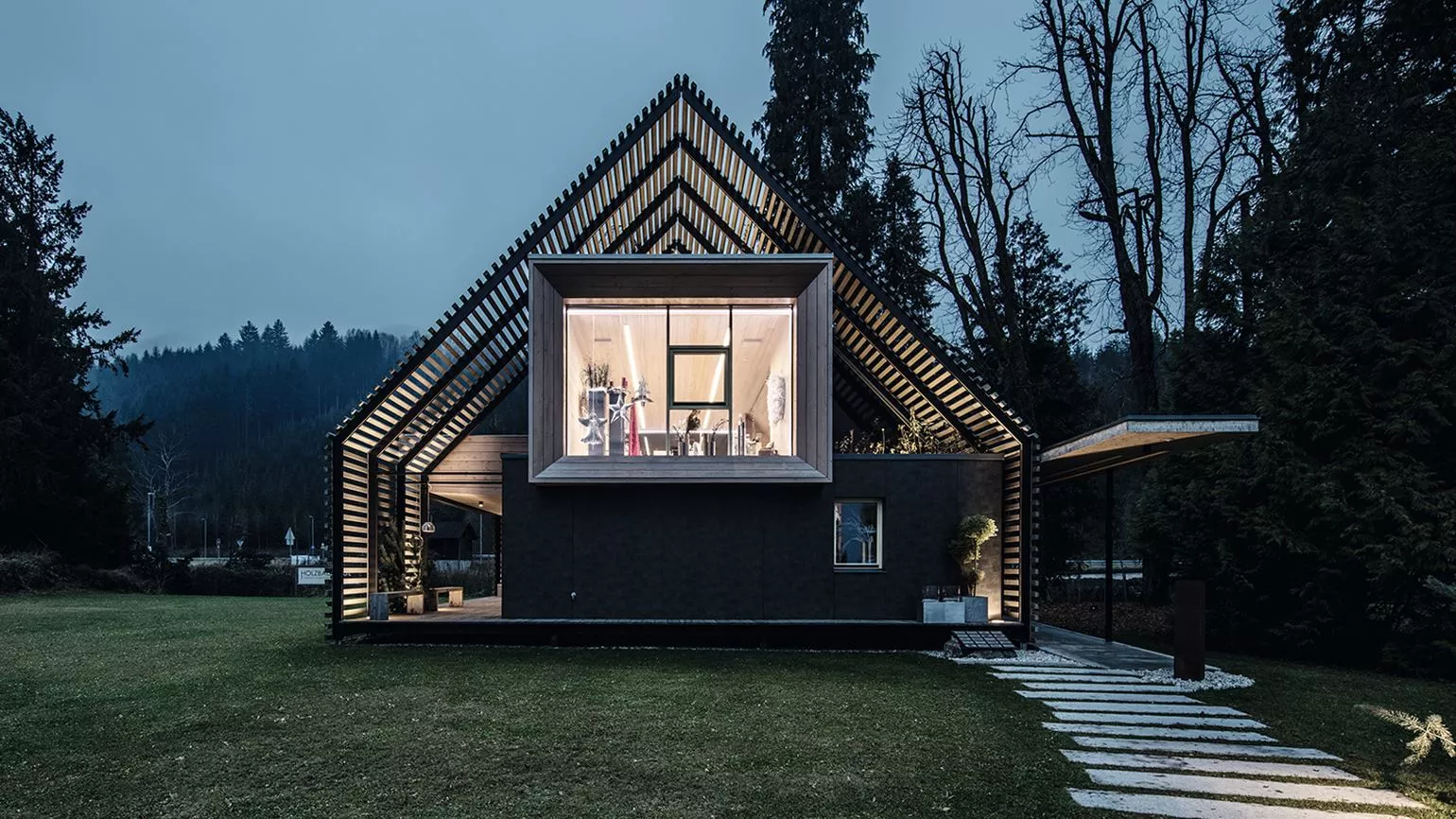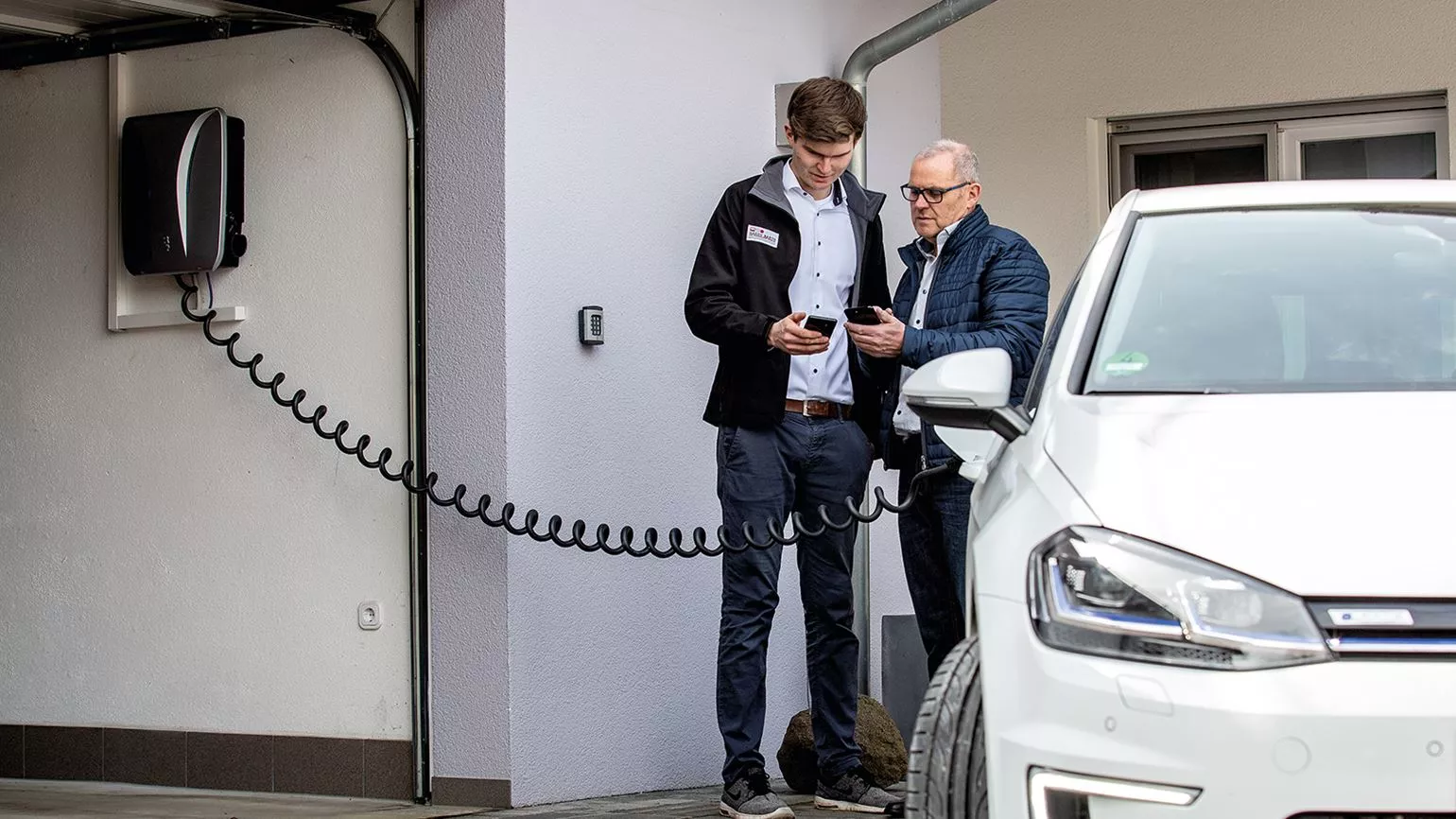Is an Energy Storage System Worth it?
Why would you store solar energy?
The ”disadvantage” of a photovoltaic system is that the solar energy generated is not necessarily available when you want it; it is only produced when the sun is shining. It’s the case that many people are not at home during the day, which means a large part of the energy generated at these times will be fed into the grid. Equally, there will be a need to take power from the grid at times when energy requirements are high.
A home storage system is designed to address this very problem – to improve availability, so that the solar energy you generated during the day is available from the evening right through to the morning.
Depending on the size of the storage system and the PV yield, you will be able to cover up to 100% of your energy requirements for most of the year.

Who will benefit from having a storage system?
In principle, everyone could benefit from having a storage system since every household will have a need for power at times of the day when the sun is not shining. For most people, energy needs are greatest in the morning and evening.
The reason for having a battery storage system is because you want to be able to use as much of your own solar energy yourself as possible. This also makes complete sense financially, since electricity from the grid is much more expensive than your own energy.
Another significant motivation for having a battery storage system is to be independent from energy suppliers: you want to be able to supply your own power.
A storage system increases…… self-consumption: self-generated solar energy can be used at any time of the day or night. … self-sufficiency: greater independence from energy supplier and grid operator. |

Should I wait until battery storage systems go down in price?
A photovoltaic system with battery storage is still a good financial investment at this time. Undoubtedly, prices for storage systems are coming down, but against that, you have to consider the fact that electricity prices are going up.
For a quick return on your investment, it’s important to get the dimensioning right – the size of the PV system should be calculated on the basis of your personal power requirements. If you know how much power you use, it’s a straightforward matter to identify the ideal system for your needs.
If you are considering a storage system, you should look at the backup power functionality. There are significant differences between the solutions offered.
Will I still have power if there is a power outage?
The best way to be prepared for power cuts is with a PV system that has an inverter with a backup function in combination with DC-coupled battery storage.
What a lot of people don’t know is that a PV system without a storage unit will not usually produce electricity in the event of a power outage. If the grid fails, you can only generate, use and store (in combination with a battery) solar energy with an inverter that has backup power functionality.
Even if you have a power cut lasting for several days, with a Fronius storage solution your power supply is secure since the battery will be recharged by your PV system during the day.
There is a significant difference in this respect between the different providers – many storage systems cannot be recharged when operating in backup power mode. This means that only the power stored in the battery at the time the power cut occurred can be used. Your PV system will no longer be supplying any power and, once the battery has run down, that’s it. These are all aspects to take into consideration when purchasing a storage system.

AC- versus DC-coupled storage unitsDC-coupled storage units are supplied with direct current from the PV system directly by the hybrid inverter. The electricity is only converted into alternating current when it is taken from the storage unit again for use in the household. This means there is hardly any loss of efficiency. In AC-coupled storage systems, direct current generated by the PV system is first converted into alternating current and then, if it is to be stored, converted back into direct current. If the electricity is needed later in the household, it must be converted back into alternating current again. Energy is lost through frequent conversion. |
Optimum energy supply in the event of a power outage
|
PV + storage system + electric car: how does it work?
The ideal setup is one in which your electric car is charged directly from your own PV system. If there is still surplus solar energy after this, which may well be the case with larger systems, it can be stored in the battery. Your system will be preconfigured for this to happen, however the settings can be changed to suit your requirements, say if you wanted to charge your car on Sundays at 3 pm.
You can also charge your electric car from your storage system. So, when you get home from work in the evening, you can hook up your car to the system to charge it with solar energy that was produced during the day and has been temporarily stored in the battery.
Saving with a battery and flexible electricity tariff
You can save even more money with a time-dependent electricity tariff in combination with a storage solution. Electricity from the grid is more expensive in the evenings, so having a battery gives you a high degree of flexibility. When the electricity price is high, you can use your own power and, when it is low, you can take it from the mains supply.

